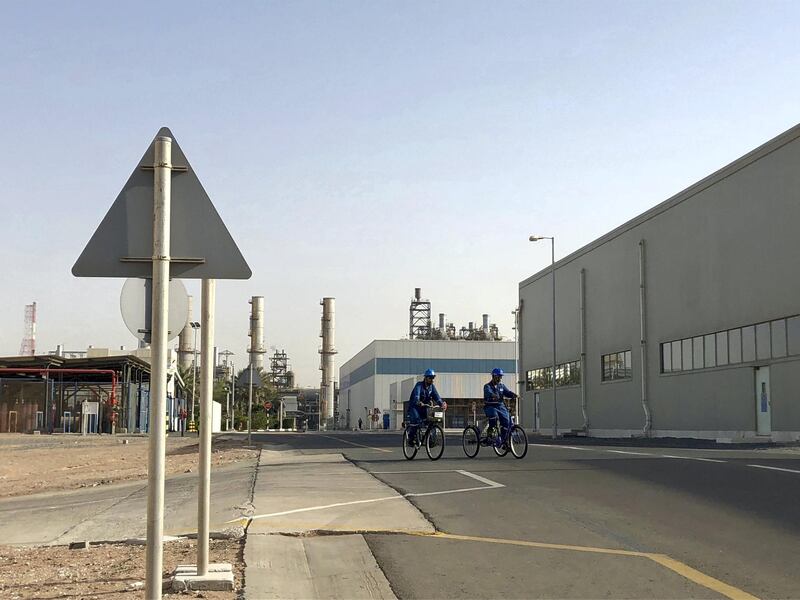State-owned Abu Dhabi National Oil Company has signed an agreement with Belgian plastics manufacturer Ravago Group to explore opportunities to grow in the global polymers segement at its refining and chemicals hub at Ruwais.
The partners will look for ways to commercialise non-prime products manufactured by Abu Dhabi’s largest chemicals maker Borouge at Adnoc’s expanding industrial site in Ruwais, Adnoc said in a statement on Wednesday.
Non-prime refers to output that does not meet quality control and will undergo compounding to produce other products in the plastics value chain.
“Adnoc seeks to create partnerships with those who can bring additional value to our hydrocarbon resources, our downstream assets and the UAE economy at large,” said Abdulaziz Alhajri, downstream director at Adnoc.
Adnoc, which sells oil on behalf of the emirate's government, announced its strategy to reposition itself as a downstream company, outlining Dh165bn in investments in the sector with partners over the next five years. The investment comes parallel to the upcoming expansion of its refining capacity from 922,000 barrels per day to 1.5 million bpd by 2025, making it the largest such facility in the world. The company has also planned for a tripling of petrochemicals capacity at Ruwais from 4.5 million tonnes per annum to 14.4 mtpa by the same timeline.
Nearly all of the chemicals output in Ruwais in Abu Dhabi’s western region is manufactured by Borouge, Adnoc’s joint venture with Austria’s Borealis, which is in turn majority-owned by the emirate’s strategic firm Mubadala Investment Company.
_______________
Read more:
[ Adnoc puts Ruwais at the heart of plans for UAE’s future beyond oil ]
[ Adnoc to invest Dh165bn with partners in downstream ]
[ Exclusive: Mubadala's petroleum and petrochemicals wing eyes lower cost barrels ]
_______________
In July, Adnoc and Borealis announced plans for a new project called Borouge 4 as well as a new polypropylene-5 plant with a planned production capacity of 600,000 tonnes per year that is set to be integrated with existing and planned refining facilities.
Adnoc also announced this week its intention to develop a derivatives and conversion park at Ruwais, allowing for the growth of industry clusters that develop on the back of feedstock form adjacent refining and chemicals facilities.
Belgium’s Ravago operates 24 plants globally, with its plastics output finding uses in the automotive, electronics, building and construction industries.
The global polymers market is expected to reach $654.38bn by 2020, driven by growing demand for plastics in the economies of China, India and South East Asia, according to a study by Grand View Research in 2015.







